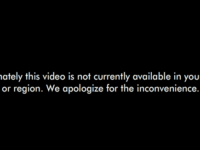The Online News Act may be only days removed from having received royal assent, but the government’s plans to support the Canadian media sector have already backfired spectacularly. While it claimed its Bill C-18 would add millions of dollars to the sector and support struggling media companies, the reality has quickly intervened: blocked news sharing on Internet platforms with cancelled deals on the horizon, reports of direct corporate intervention in news departments, massive layoffs and regulatory requests to decrease spending on news, and now a nightmare merger proposal between Postmedia and Torstar. And that is just over the past week. Canadian Heritage Minister Pablo Rodriguez has amply demonstrated that there is no Plan B, offering up the prospect of further dependence on government through more public spending to mitigate the harms from his massive miscalculations. Not all of this is the government’s doing, but having relied on empty assurances that blocked news sharing was merely a bluff, Rodriguez picked politics and tough talk over good policy and is now left with media chaos.
Post Tagged with: "meta"
Buyer’s Remorse?: The Risks of Bill C-18 Leading to Blocked News Sharing Becoming Real to Canadian Media
When Le Devoir director Brian Myles appeared before the Senate committee studying Bill C-18 last month, he closed by urging the committee to pass the legislation quickly, stating “the time to act is now. We can’t wait two years between the passage of the bill and the CRTC regulations, because the delay will benefit opponents, giving them time to organize and undermine the spirit and the letter of the law.” While Myles acknowledged that claims regarding “theft” of news content by Internet platforms was overstated, he nevertheless expressed full support for the bill. One month later, the Online News Act is now law, Meta has confirmed that it will block news sharing before it takes effect, and the government is reportedly in last ditch negotiations with Google to stop it from doing the same.
Made-in-Canada Internet Takes Shape with Risks of Blocked Streaming Services and News Sharing as Bill C-18 Receives Royal Assent
Bill C-18, the Online News Act, received royal assent yesterday, but any celebrations by the groups who lobbied for unprecedented government intervention into the news sector must surely have been tempered by the reality that quickly emerged. Meta confirmed that it would block news sharing from its Facebook and Instagram platforms in Canada, while Google met with Canadian Heritage Minister Pablo Rodriguez to see whether a compromise could be reach to avoid a similar outcome. The end result – at least for now – is a legislative mess that leaves no clear winners with Meta downgrading its platforms in Canada, Canadians cut off from their ability to share news on popular social media platforms, Canadian news outlets losing their second most important source of referral traffic, and the government looking to have made an epic miscalculation for having ignored the risks it created by establishing a mandating payments for links system with uncapped liability for the Internet companies.
Tough Talk, Empty Answers: How Heritage Minister Pablo Rodriguez is Propelling Canada’s News Sector Toward the Bill C-18 Cliff
Canadian Heritage Minister Pablo Rodriguez appeared last night before the Senate committee studying Bill C-18, facing repeated questions about how his government will respond if Internet platforms such as Facebook block news sharing in response to bill’s system of mandated payments for links. Much like Prime Minister Trudeau earlier in the day, Rodriguez had few answers, relying instead on tough talk about not backing down against the tech companies or warnings that even talking about the risks was playing into their hands. Yet the reality is that the government has boxed itself into a corner with fatally flawed legislation that could leave Canadian news organizations with lost revenues and Canadians with reduced exposure to reliable news.
Meta to Test Blocking News Sharing on Facebook and Instagram in Canada in Response to Bill C-18’s Mandated Payments for Links
Meta has announced that will test blocking news sharing in Canada on its platforms Facebook and Instagram in response to Bill C-18’s system of mandated payments for links. Even as some have suggested the position is bluff, the company has not wavered for months as this emerged as the most likely end game. Back in October, it said it was considering blocking news and in March it confirmed it. The government now says it won’t give in to “threats” but the reality is that Canadian Heritage Minister Pablo Rodriguez more accurately described it last year as a “business decision” when he appeared before the Heritage committee. Given that Facebook says news is responsible for only three percent of content on user feeds and that it is highly substitutable (ie. users spend the same amount of time on the platform whether scrolling through news or other content), the business choice seems like an obvious one.


Recent Posts
 Nobody Wants This: Senate Rejects Government’s Anti-Privacy Plan for Political Parties By Sending Bill Back to the House With a Sunset Clause
Nobody Wants This: Senate Rejects Government’s Anti-Privacy Plan for Political Parties By Sending Bill Back to the House With a Sunset Clause  The Law Bytes Podcast, Episode 258: Jaxson Khan With an Insider Perspective on AI Policy Development in Canada
The Law Bytes Podcast, Episode 258: Jaxson Khan With an Insider Perspective on AI Policy Development in Canada  Time for the Government to Fix Its Political Party Privacy Blunder: Kill Bill C-4’s Disastrous Privacy Rules
Time for the Government to Fix Its Political Party Privacy Blunder: Kill Bill C-4’s Disastrous Privacy Rules  The Law Bytes Podcast, Episode 257: Lisa Given on What Canada Can Learn From Australia’s Youth Social Media Ban
The Law Bytes Podcast, Episode 257: Lisa Given on What Canada Can Learn From Australia’s Youth Social Media Ban  Court Ordered Social Media Site Blocking Coming to Canada?: Trojan Horse Online Harms Bill Clears Senate Committee Review
Court Ordered Social Media Site Blocking Coming to Canada?: Trojan Horse Online Harms Bill Clears Senate Committee Review





